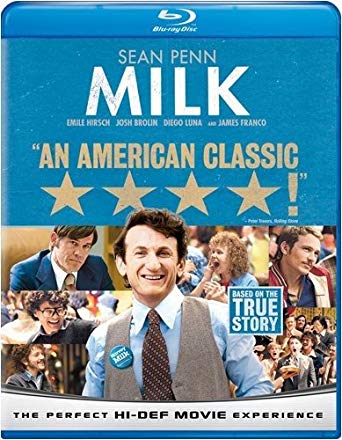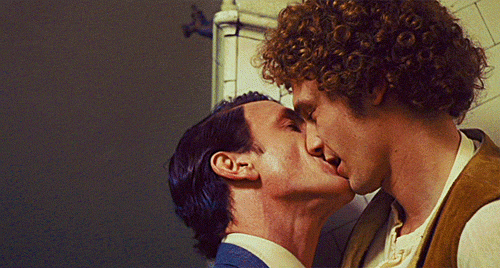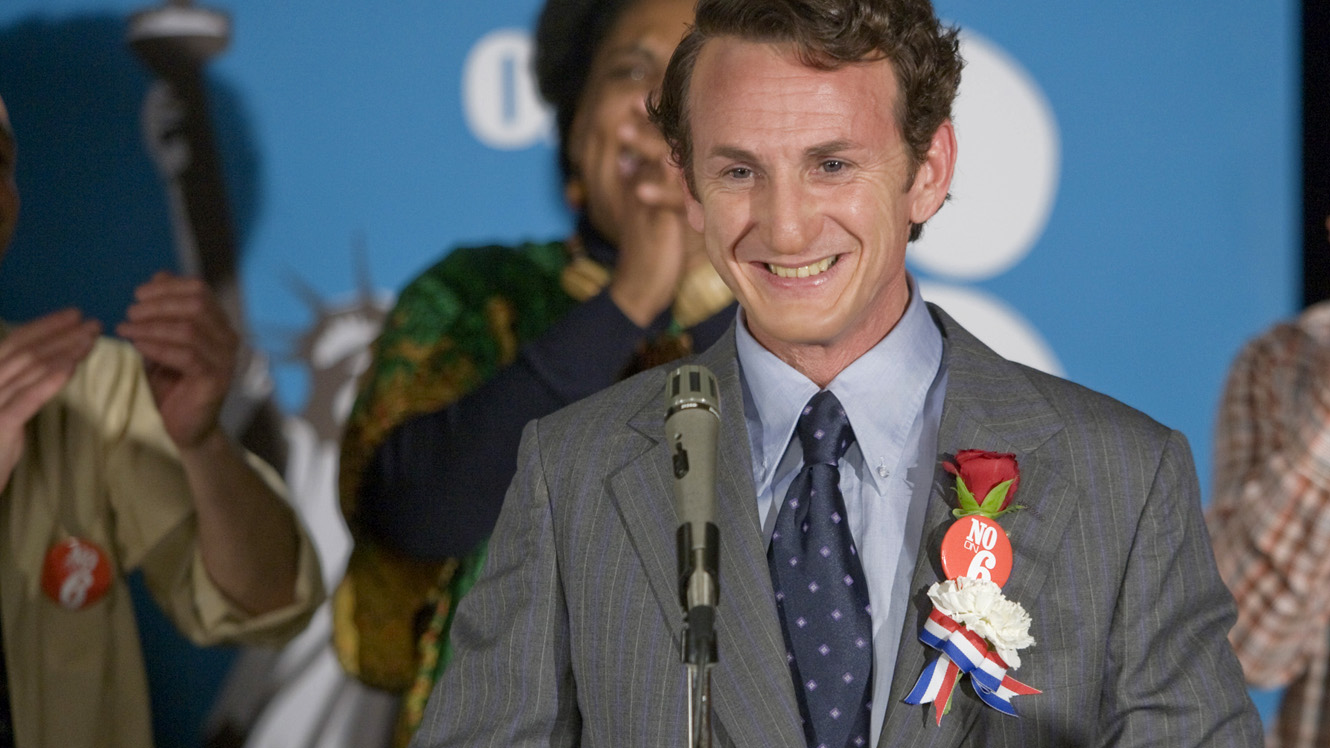by Eric Blume
 This month marked the tenth anniversary of the release of Gus Van Sant’s semi-biopic Milk, chronicling the last eight years of the life of gay politician Harvey Milk. If you’ve never seen Milk, get ye post haste to it, if for no other reason than to be fully immersed in this crucial window of history. If you saw Milk when it was released a decade ago and haven’t seen it since (which was true for me), watch it again: it’s aging beautifully.
This month marked the tenth anniversary of the release of Gus Van Sant’s semi-biopic Milk, chronicling the last eight years of the life of gay politician Harvey Milk. If you’ve never seen Milk, get ye post haste to it, if for no other reason than to be fully immersed in this crucial window of history. If you saw Milk when it was released a decade ago and haven’t seen it since (which was true for me), watch it again: it’s aging beautifully.
Olympic diver Tom Daley’s husband, Dustin Lance Black, won the Oscar for Best Original Screenplay for this movie, and the trophy was richly deserved. Black not only manages to avoid almost every biopic cliché, he captures the beginning of the gay rights movement with precision, pain, and most importantly, humor. Black’s script starts when Harvey Milk turns forty, had been mostly closeted, and was not politically aware. He chronicles his consciousness-raising without a hint of clumsiness or fake nobility. And while Black keeps his focus squarely on Milk, his real achievement is in casting a wider net: he gives Milk’s real-life contemporaries a vivid presence, and shows us a full community within the Castro neighborhood in San Francisco. This script manages to be both macro and micro, and throughout you can see Black’s gigantic heart and passion for this story...

That said, in many ways, it’s Van Sant’s film, and it’s impossible to underestimate his artistry here. He collaborated beautifully with the late great cinematographer Harris Savides to capture a look that reflects the real archival footage from the 1970s that’s used here and there, but has its own grainy authenticity. This visual look deeply roots the film in its period, yet feels contemporary and immediate. When the film hops back and forth between real footage from the 1970s to Van Sant’s footage, it's seamless and feels effortless, but is, in fact, the result of brilliant navigation by Van Sant with all of his department heads, from the photography unit through to costumes and art direction.
In addition, Van Sant’s staging of all of the rallies, marches, and uprisings is exciting and stirring. The big scenes have immediacy and force, and he absolutely gives you the feeling that these LGBT brothers and sisters were fighting for their lives. There’s a direct line of dialogue to that effect late in the script, but you've had that feeling all along watching.
Van Sant also evokes this period without a single song cue until one hour into the movie, never leaning on a crutch for the audience. And most importantly, he gives the film so many colors and flavors, reflective its characters; the film is alternately angry, joyful, political, super gay, sexy, vibrant, quiet …but always, always alive.

And then there’s the work he does with the actors. Alison Pill, Emile Hirsch, and James Franco all pop in their small roles. And Josh Brolin absolutely nails the role of Milk’s assassin, fellow politician Dan White. One of the smartest strokes in the movie comes within Brolin’s performance. Milk is always first and foremost a movie about power. There’s a line in the script where it’s suggested that Dan White may have himself been gay, but it would be a lesser movie if that were the only idea put forward. Brolin makes it clear that Dan White felt overwhelmed by powerlessness. He felt he had no “issue” like Milk did, and watching Milk succeed and get things accomplished while he himself could not drove White to murder. Brolin finds the seething inner rage that some straight white men, who fully believe the world was meant for them and their beliefs, cannot process. Brolin plays these scenes with a sense of moral superiority, confused incredulity, and panicked weakness. He’s ultimately only in a handful of scenes, but Brolin lends the film a thrash of power and emotional violence.
Then there’s Sean Penn. He won his second Best Actor Oscar for this film, and his performance is staggering. The warmth and flamboyance of the real Harvey Milk seems to have entered every cell of Penn’s body and freed him from any of his own “actorly” tendencies. Penn is one of the cinema’s greatest actors, but he can be a pretentious dickhead in public, and in the period right before Milk, his acting took on a self-aware weight and seriousness that sometimes overshadowed his incredible natural instincts. In Milk, he's liberated: he’s light but forceful, and he shows us a man and politican who talks a lot but is also always listening. He captures the iconic hero's infectious goofiness, as well as his intelligence. He also expertly calibrates Milk’s learning curve on becoming a leader: as he gains political credibility, his heart seems to grow bigger, and you can see the fire in him that he’s finally found his passion. It’s a performance for the ages.

Milk lost Best Picture and Best Director to Slumdog Millionaire. Danny Boyle is also a master filmmaker, and without a doubt, did wonders with a far inferior script. Milk’s virtuosity remains more subtle, but upon a rewatch, I found its accomplishments even more impressive a decade later.
What are your thoughts on Milk, Harvey Milk, Sean Penn? Do you think the film stacks up as one of the best LGBT movies ever made?